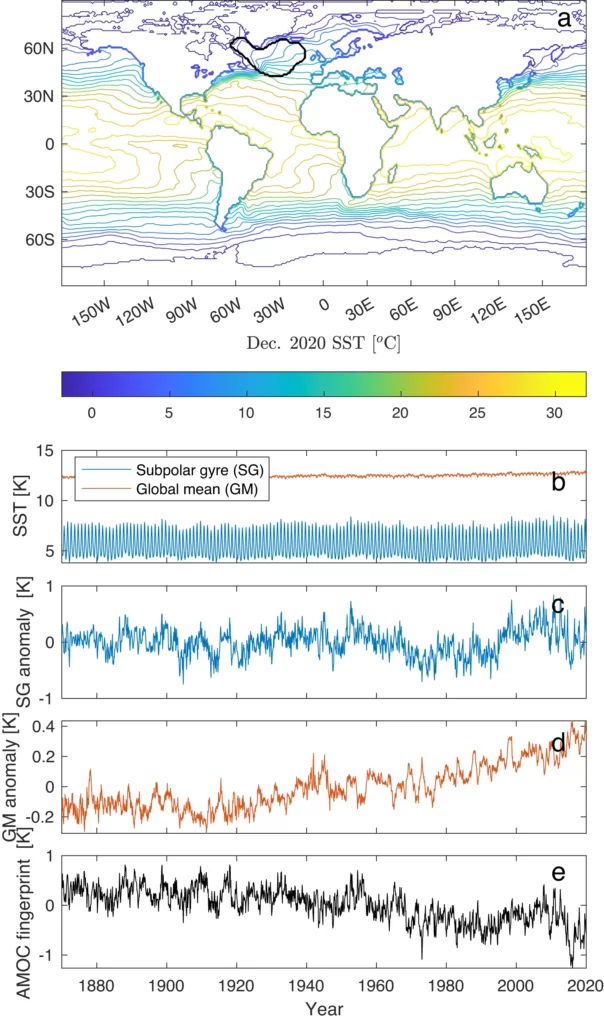A new study suggests that the Gulf Stream system, known as the Atlantic Meridional Overturning Circulation (Amoc), could collapse by 2025. This would have severe consequences for the climate. Researchers observed warning signs of a tipping point in 2021, indicating that Gulf Stream was already at its weakest in 1,600 years due to global warming.

According to the analysis, if global carbon emissions are not reduced, the collapse of Gulf Stream could occur sometime between 2025 and 2095, with a likely estimate of 2050. Past collapses have shown rapid temperature changes of 10 degrees Celsius, although those occurred during ice ages.
Some scientists believe that it is too difficult to accurately predict when a tipping point will occur due to uncertainties and assumptions in the data. However, they all agree that the potential collapse of the Amoc is a serious concern and should motivate urgent reductions in carbon emissions.

If Gulf Stream were to collapse, it would have devastating effects globally. This includes disrupting rainfall patterns in India, South America, and west Africa, which would negatively impact food production for billions of people.
Additionally, Europe would experience more storms and colder temperatures, and the eastern coast of North America would face rising sea levels. The collapse of Gulf Stream would also pose a greater threat to the Amazon rainforest and Antarctic ice sheets.

The new study, published in the journal Nature Communications, used sea surface temperature data stretching back to 1870 as a proxy for the change in strength of Gulf Stream currents over time.
The analysis assumes that greenhouse gas emissions will continue to increase. However, if emissions start to decrease due to climate policies, there would be more time to prevent global temperature from surpassing the Gulf Stream tipping point.
Reference- Nature Communications, The Guardian, National Geographic, NOAA webstie






